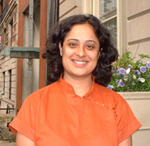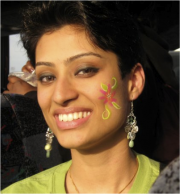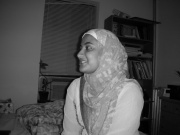From The Peopling of New York City
Clarifying the Diverse Roles of South Asian Women: Opinions of South Asian Women
It is unfortunate that when one thinks of women of South Asian descent, they automatically assume that they have just two roles in life: mother and wife. What one has to realize is that this backwards facing ideal does occur but does not apply to the majority of situations. The South Asian women working in Jackson Heights contribute to this progression. They may come here with their husbands, fathers, or male guardians but if they are young and capable of working they have many opportunities to do so and are sometimes even encouraged to.'
Once they move to America, women who may not have worked before now face the pressure to get jobs and help support the family. They sometimes face problems doing so as they are unskilled. In an Interview with Kanushree Jain, 19, said that "when [her] mom was growing up she thought her domain would be housewife so she learned embroidery and amazing cooking and she never really thought about a career." Coming here changes many things for women as they have to come out of their comfort zone and do something that was looked down upon in their home country. Many women don't receive criticisms from their husbands when they want to work, however. In fact, many fathers want their daughters to excel and send them to universities because "education leads to respect...for the family and that's a very important thing."
Sibha Zaheer, 19, is one such example of a young Pakistani woman who is coming out of her traditional lifestyle. Sibgha Zaheer is a young Muslim woman in college, with goals of studying medicine. Currently, she is at a competitive program at The Sophie Davis School of Biomedical Education in City College (CUNY). She was born in Pakistan, but moved to Staten Island, New York before at the age of one. Sibgha connects strongly with her Muslim identity and it empowers her as a woman to take advantage of many opportunities that she would not have in Pakistan. She serves as a foil to her mother, who was raised more traditionally in Pakistan, where her mother’s freedoms of education and socialization with men was restricted. Although Sibgha and her mother tend to butt heads once in a while, modern American culture has become more accepted and more integrated into Sibgha’s life, with the slow approval of her parents. Sibgha's driving force remains her religion, and although she may have conflicts accepting aspects of married life, she lives with big goals for herself.

In an Interview with Sibha Zaheer, Sibgha communicates her dual roles and the difficulty balancing her mother's expectations, "I guess as far as the future, my mother expects me to finish school, get married, buy a house, etc. but in everyday life she expects me to be able to balance school work and house work, chores etc. and the chores are often the ones to prepare me for the future/marriage, like cooking cleaning, etc. I guess to her even if a woman gets a job, she still has to maintain all her responsibilities at home. I guess you can say that’s where most of the conflict lies because yes it’s important to be able to balance everything in life and yes preparing for responsibilities later in life is important, but for me personally I only can focus on school or home. It gets very hard to balance chores with school work all the time. But, she has become more understanding about it and has realized that women don’t exactly have that same role anymore."
Education does lead to respect and consequentially, to more opportunities for advancement. Seema Agnani is the Executive Director of Chhaya Community Development Corporation which is an organization based in Jackson Heights that helps South Asian residents with issues regarding home ownership and possible scams. Interviewed by Steve Dubb in June 2007, Agnani discussed the role of women in the business of Jackson Heights. She said that "there are gender politics that play into this [business] as well. A lot of our staff consists of women, while a lot of the business community is male and conservative. It’s not easy, but we are building trust and some business leaders are more progressive than others." This progressive outlook is exactly something that a South Asian woman who achieved a Master's in Urban Planning and Public Policy from the University of Illinois at Chicago would attain from her experiences.

